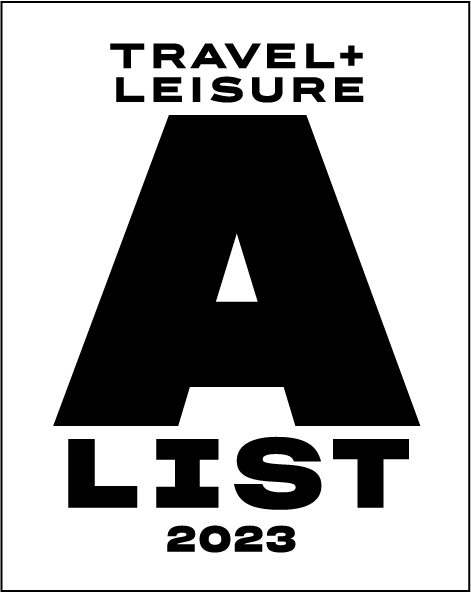Before you go to Tanzania
TANZANIA FACTS:
- Capital city and administrative capital: Dodoma
- Commercial capital: Dar es Salaam
- Official Languages: Kiswahili and English
- Time: GMT + 3
- Currency: Tanzanian Shilling (Tsh or TZS). Credit cards (Access, Mastercard, Visa, American Express, Eurocard and Diners) are accepted in certain larger hotels and restaurants. Traveler’s cheques in US Dollars are recommended, although Euros are also generally accepted.
- Please note: Where credit cards are accepted, the payments will normally be recorded in US Dollars, regardless of the card’s default currency
- Banks and Forex Bureaux are available at airports and in all major towns.
CLIMATE
Tanzania’s climate is predominantly tropical. For the whole country, the hottest months are from October to February. The long rains are from mid-March to late May, and the short rains from November to January. The coolest months are June to August when the nights and early mornings can be cold. In high-altitude areas such as Kilimanjaro, temperaturescan fall below freezing. Coastal areas are hot and humid with an average daytime temperature of 30c. Sea breezes make the climate very pleasant from June to September.
ENTRY REQUIREMENTS
- A valid passport, a valid visa for those not exempted (US$ 50 per person per single entry visa valid for 3 months). Copy of visa application form at the end of this document.
- If necessary, single entry visas only can be purchased upon arrival at the immigration desk. Please have the correct money in US Dollar cash and be prepared for lines.
- Yellow Fever certificate often required. Please see below.
HEALTH
- Yellow Fever Certificates are NOT needed for direct European arrivals.
- All guests/visitors arriving from Non Endemic Yellow Fever zone(s) will not be required to show a Yellow Fever vaccination certificate on their arrival to Tanzania.
- All guests/visitors en route to Tanzania, who have passed through an Endemic Yellow Fever zone(s) BUT did not leave that country's airport, will be treated as above (1) above.
- All guests/visitors en route to Tanzania, who have passed through an Endemic Yellow Fever zone(s) and have left the airport of that endemic country, will be required to show yellow fever certificates on their arrival in Tanzania. Otherwise they will require a vaccination at the entry point of arrival in Tanzania.
- All guests from Endemic Yellow Fever zone(s) will be treated as those in (3) above.
- All guests/visitors travelling from the Tanzania mainland to Zanzibar will not be required to show their yellow fever vaccination certificate as Zanzibar is inside the United Republic of Tanzania Note: The same regulations now apply to those flying directly to Zanzibar.
- Malaria protection is essential. Please consult your doctor for advice on prophylactics.
- Camps do not have medical facilities and our staff are not all medically trained. Therefore clients should bring their own necessary medications with them.
INSURANCE
- Comprehensive travel insurance is essential, including medical cover. We also highly recommend trip cancellation cover.
- Every client will be additionally covered under AMREF’s Flying Doctor medical insurance. Please read the chapter below with full details on the Flying Doctor service.
VOLTAGE
220 volts/AC50Hz. Sockets are UK style, 3 pin square plugs.
TIPPING/GRATUITIES
You should only tip if you genuinely feel that the service you have received warrants it. Tips for camp staff are normally handed to the manager who distributes them equally at the end of the month. We’re often asked for aguideline and while this depends very much on how you feel, we’d suggest around US$10 per guest per night at each camp. It is quite normal to tip your guide or ranger separately using the same guidelines (around US$10 per person per night). Equally it’s not unusual for families to pitch it slightly below this figure given they’re travelling as a group and these amounts can quickly add up. This is entirely discretionary, different cultures approach this issue in varying ways so please don’t feel pressured to contribute more than you’re comfortable with.
PHOTOGRAPHY
- Please be careful when photographing public buildings, airports, bridges, the national flag and people in uniform. If you do not get permission then do not take a picture. If in doubt, don’t photograph it!
- Please make sure permission has been sought before photographing local people, and their villages. They may charge for pictures to be taken. Please check with your guide.
- No flash photography is allowed when viewing the chimps at Mahale.
COMMUNICATION
- International Direct Dial is available. The country code for Tanzania is +255. The outgoing international code is 00 for the United States, and 000 for all other countries.
- Several cellular phone networks operate in Tanzania, and roaming lines work in most major cities, and towns.
- Costs for telephone calls are generally high, so make sure you check the rate before making the call.
- Some locations have satellite telephones available for a fee.
INTERNATIONAL & DOMESTIC AIRPORTS
- Dar es Salaam International Airport is located 15kms southwest of the city, and takes approximately 25 minutes by car. Airport facilities include a duty-free shop, car hire, post office, banking and bureau de change, and a bar and restaurant.
- Kilimanjaro International Airport is located 40 kms from Arusha and takes approximately 1 hour to reach by car. Facilities include curio shops, a post office, and a bar. Zanzibar International Airport is located 7kms from the centre of Stone Town, and takes approximately 15 minutes to reach by car. Facilities include a cafeteria and bureau de change.
- Arusha Domestic Airport is located on the outskirts of Arusha town, an approximately 1hr45min drive from Kilimanjaro airport, depending on traffic. Facilities include a curio shop, and a snack bar.
LUGGAGE RESTRICTIONS
Please check with your international airline regarding their luggage policy as these vary. Once in Tanzania, there are strict limitations on luggage on internal flights. The allowance is 15kg per person to be packed in soft bags (no hard-shell suitcases permitted). You can expect to carry an additional 5kg of hand luggage in addition to this. Any excess is charged at $3 per kg but depends on available space on the plane so there are no guarantees.
WHAT TO BRING/SUGGESTED LIST OF THINGS TO PACK
Every safari, and every travelers needs are different so below is a list of things that we’ve found useful, from our experience of travelling in Africa. We’d be glad to answer any specific questions:
- Shorts, lightweight trousers, short & long sleeved shirts in neutral, bush colours. Sweater or fleece during the colder months.
- Swim suit/sarong
- Comfortable lightweight walking shoes or boots.
- Sun hat and sun glasses
- High factor sun lotion
- Camera plus plenty of film/memory cards.
- Please note there is a luggage allowance of 15kgs on all shared charter flights to and from our camps. There can be no exceptions to this rule, unless extra seats are booked in advance.
- The island of Zanzibar and the beach resorts on the mainland are predominantly Muslim, so recognition of traditional courtesies is important. Unsuitable clothing such as swimwear or brief shorts, are not acceptable in town and villages away from the main tourist resorts.


